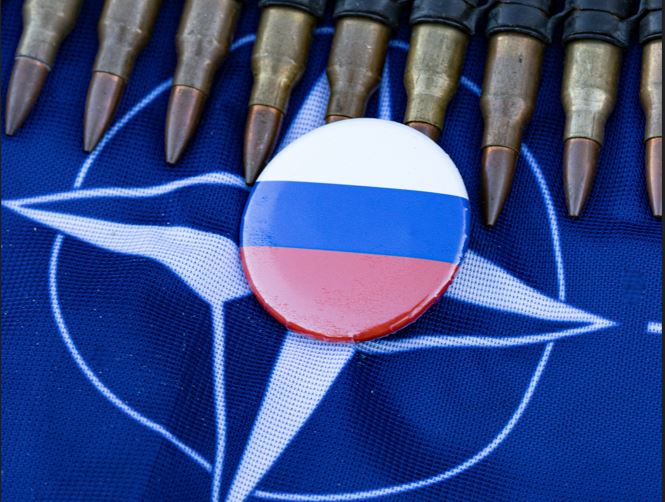By Prof. Dr İLTER TURAN
The Lennart Meri Foundation organizes a foreign policy and security conference every May in Tallinn, Estonia with the participation of regional leaders, noted EU and NATO officials, diplomats, scholars and journalists. While global policy and security concerns are always on the agenda, it is understandable that the Estonians are particularly concerned with matters that are of immediate relevance to them. With Russia trying to invade Ukraine, it was hardly surprising that much of this year’s meeting focused on Russia, its motives, its failures, its future agenda, its national ideology and how to respond to the security challenges it poses.

In order to understand how the Baltic States view Russia, it may be useful to remember history. Estonia, Latvia and Lithuania enjoyed a period of independence during the interwar period and were quickly invaded by the USSR when World War II broke out. The Soviets entered Estonia in late 1940 and incorporated it into their realm. In fact, Lennart Meri’s father who was a distinguished diplomat was sent to Siberia and allowed to join his family six years later after it became clear that the Baltic States were now Soviet territories. Although members of the Western alliance did not acknowledge the legality of the Soviet invasion, they were not in a position to challenge it since they were not ready to continue a war with the Soviets.
As the USSR was collapsing, the Baltic States were the first to declare their independence. They worked hard to quickly become integrated to Europe so as to be sure that the Russians would never come back. Accordingly, they joined both NATO and the EU with enthusiasm. During Soviet domination, they had managed to maintain a sense of identity that included seeing themselves as Europeans. In fact, I remember a Russian friend telling me that in the days of the USSR, traveling to the Baltic States was referred to as “going to Europe.” Therefore, their integration to EU did not prove to be particularly difficult. The fact that they were mini-states in terms of territory and population were also clearly of help. With the stabilization of relations between Russia and the West, the Baltic states had begun to look forward to a peaceful future. Sure, they encountered some problems with Russian speaking minorities, and Russian transit routes to the Baltic (through Lithuania to Kaliningrad), but they were manageable and could be handled peacefully.
Its invasion of Ukraine has totally changed attitudes toward Russia. The Baltic states have begun to fear that if Russia succeeds in conquering Ukraine and making it a part of Russia or alternatively creating a vassal state that cannot pursue policies which the Russians do not approve of, they will be the next to face the Russian challenge. They judge that the West in general and NATO in particular must demonstrate an unshakable determination to stand against the Russians. Two lines of action that are not mutually exclusive are considered to counter the Russian “threat.” First, Russia must be encircled by NATO to contain its expansionism. The security measures in both the Baltic and the Black Sea areas must be tightened. Accordingly, Sweden’s NATO membership process must be rapidly concluded, preferably before the NATO meeting in Vilnius in July. More steps also need to be taken in the Black Sea to render it a NATO Lake. Second, the Putin government must be defeated in such a way that it be neutralized as a military force that threatens the Baltic States and Europe. A determined stand against Russia, the Baltic analysts argue, would also show to the Chinese that they would encounter determined resistance in its efforts to take over Taiwan.
While the fears of the Baltic States are understandable, the prescriptions they have in mind require careful examination. The first prescription of encircling the Russians to contain them by also trying to make the Black Sea a NATO lake cannot be fully achieved since the passage through the Turkish Straits is regulated by an international treaty that has served the interests of the littoral states well over the years. Neither Turkey or Russia has an interest in changing the Montreux Convention. To the comfort of NATO, Russia’s Black Sea fleet is not particularly powerful and is currently on the defensive. The second prescription, the neutralization of Russia as a military force, is not only unrealistic but would probably in the long run serve to enhance Russian revisionism. Currently, NATO countries are sending weapons to Ukraine but none is considering sending in soldiers not only because this would constitute a major step of escalation but also because public opinion in those countries don’t want their soldiers to fight in Ukraine. Russians must be shown that their military goals are not achievable. But past that, they must be invited to become a partner in building European stability. Exclusion would only invite revisionism.
NATO must make its Baltic partners feel secure but also persuade them that a total Russian defeat is both unrealistic and undesirable. This is a difficult challenge.
By Prof. Dr İLTER TURAN
